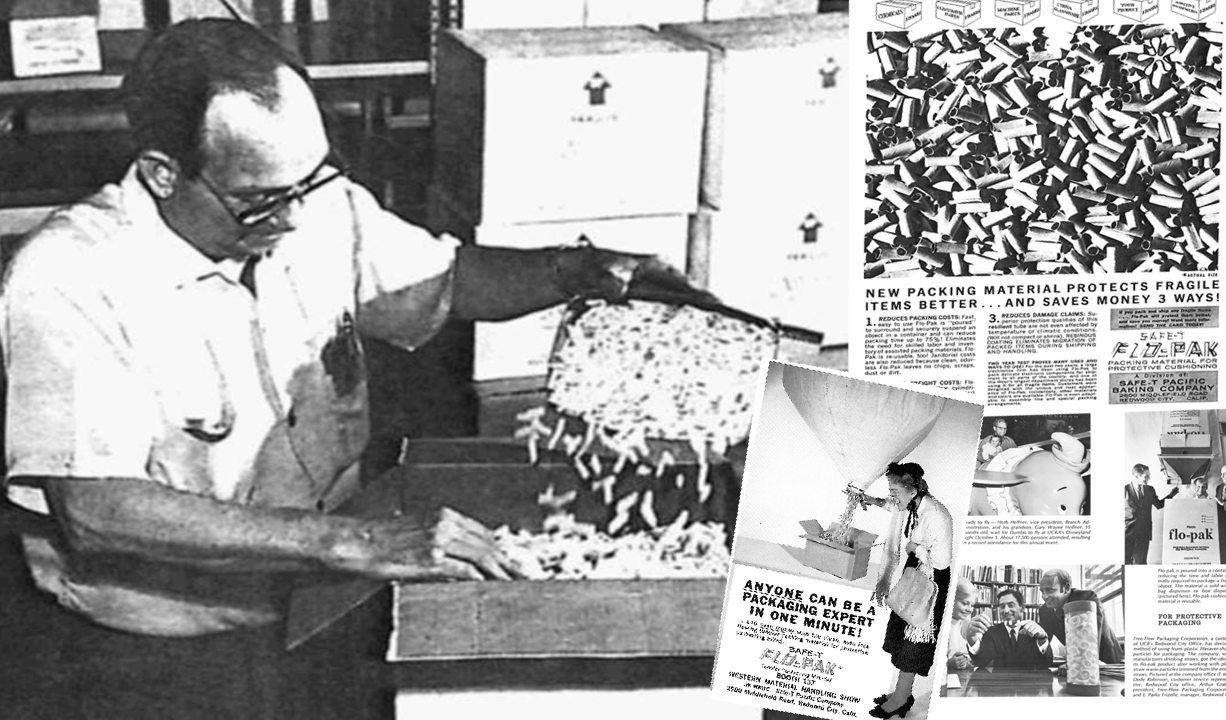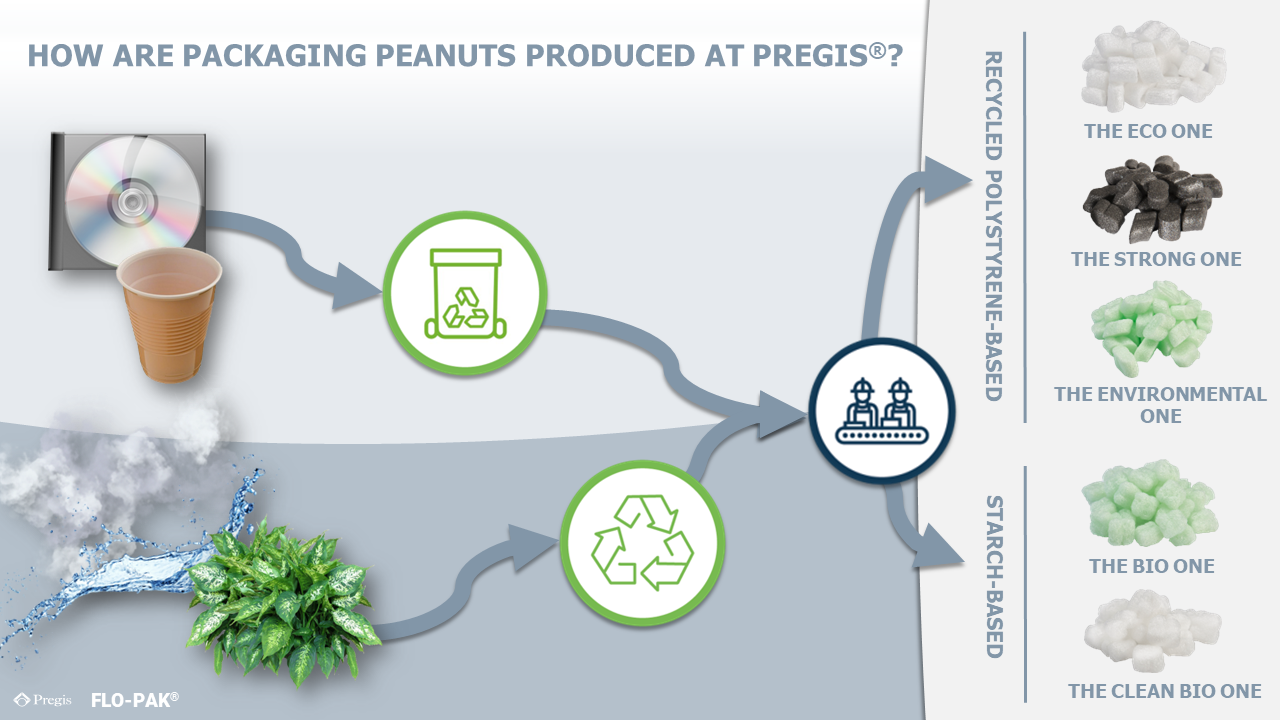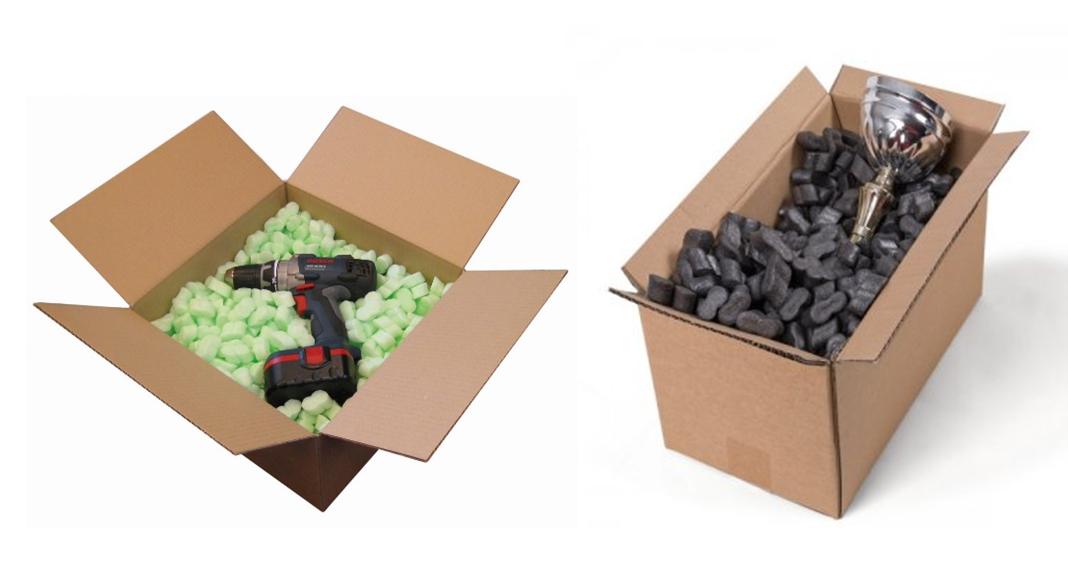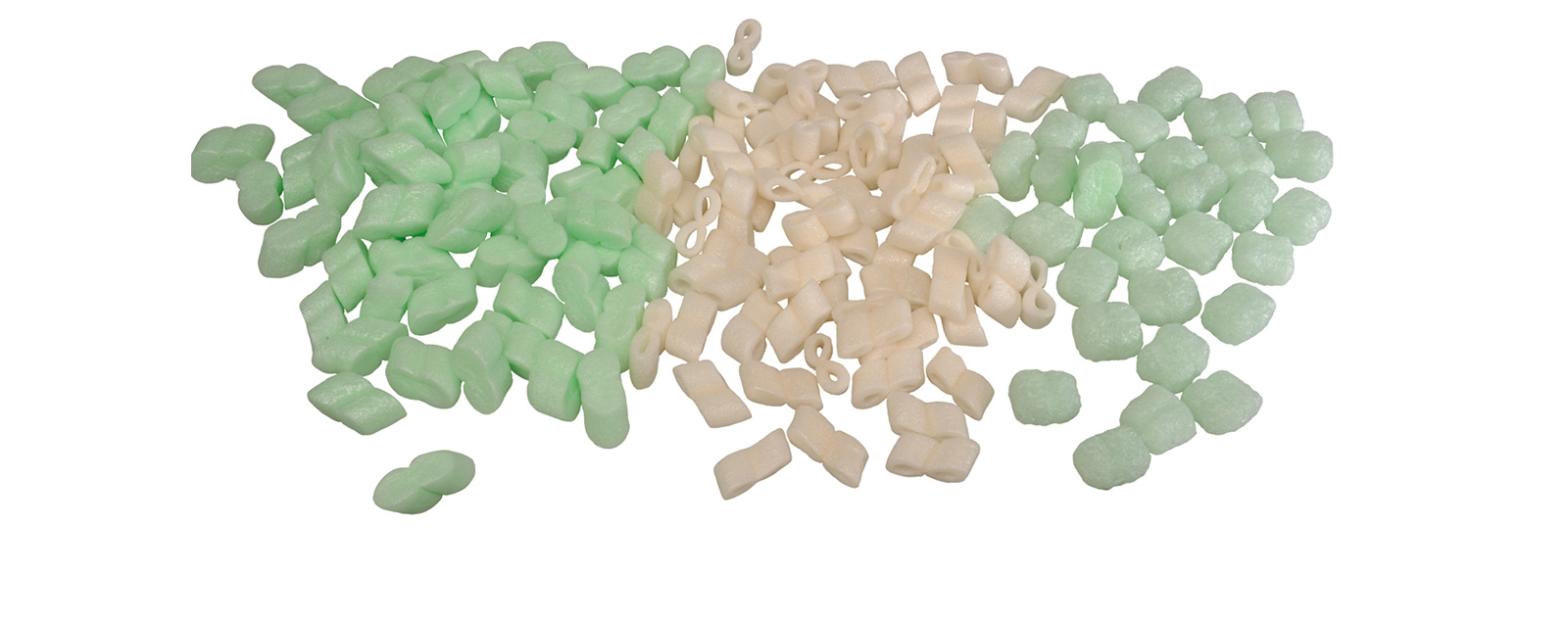Choosing Packaging Peanuts to Protect Your Shipments
The choice of sustainable packaging peanuts matters. Find out how Pregis packaging peanuts can help you protect your items from damage.
Whether you are a small business, a large enterprise, or an end customer, you have encountered these tiny foam-like objects. But packaging peanuts, also known as loosefill chips, have a rich history, a variety of applications, and biochemical components that determine how they should be disposed of in a sustainable manner. Keep on reading to find out more.
How Packaging Peanuts Came to Life
Before the invention of the first packaging peanuts by Robert E. Holden in 1962, shipments were protected with shredded newspapers and similar paper material. This method was quite unreliable as fragile objects were at risk of not only breakage but also temperature impact from the outside. With the discovery of petroleum-based polystyrene, packaging peanuts made from this material represented a more robust and durable alternative.

Production of Flo-Pak® Packaging Peanuts in 1967
Shortly after the discovery of polystyrene packaging peanuts began mass production. Flo-Pak®, now a member of the Pregis® portfolio, remained one of the most famous pioneering brands of this type of loose fill. In addition to being a great shock-absorbing material, foam packaging peanuts represented a packaging revolution at the time as they could be reused many times.
Transition Towards Biodegradable Packaging Peanuts
The increase in demand for sustainable products was a driving force behind the transition towards starch-based biodegradable packaging peanuts. These do not contain polystyrene but are made of plants, air, and water. Through a manufacturing process called extrusion, the biomaterial is shaped into biodegradable packaging peanuts that are used in the protective packaging industry today. This type of loose fill is also soluble in water.

Flo-Pak® packaging peanut degrades in the presence of microorganisms
Within the Pregis Flo-Pak portfolio, you can find several types of packaging peanuts to perfectly suit your shipping needs. All Pregis loose fill chips are sustainable, with either 100% recycled material or 100% starch, easy to use, and offer great protection. The Eco One, the Strong One, and the Environmental One are made of recycled polystyrene that previously served other purposes. Meanwhile, the Bio One and the Clean Bio One are made of vegetable starch, air, and water.

The process of producing packaging peanuts at Pregis
What are the Applications of Packaging Peanuts?
Packaging peanuts serve wonderful use in protecting odd-shaped, sharp, and heavy items. They are also an excellent choice to fill small gaps in boxes. As such, there are a variety of industries where packaging peanuts are used, including e-commerce, spare parts, and chemical as well as medical industries. When time is of the essence, these tiny chips are perfect for accelerating the speed of packing because they do not have to be assembled in the box like other protective packaging.

Different applications of packaging peanuts
The advantages of choosing Pregis loosefill chips to protect your products include their great memory effect, which enables them to adapt to any shape of an object. Furthermore, they are easy to use and extremely lightweight, making them a great cost-effective shipping solution. Our packaging peanuts fulfil our sustainability mission - the Bio One and the Clean Bio One are certified by DIN CERTCO in accordance with EN 13432, making them industrially compostable. Regardless of which type you choose, you can rest assured that by using Pregis Flo-Pak packaging peanuts, you are making a reusable, recyclable, and biodegradable choice that contributes to a circular economy.
Curious to find out more? Contact us today via https://uk.pregis.com/contact-us/.

